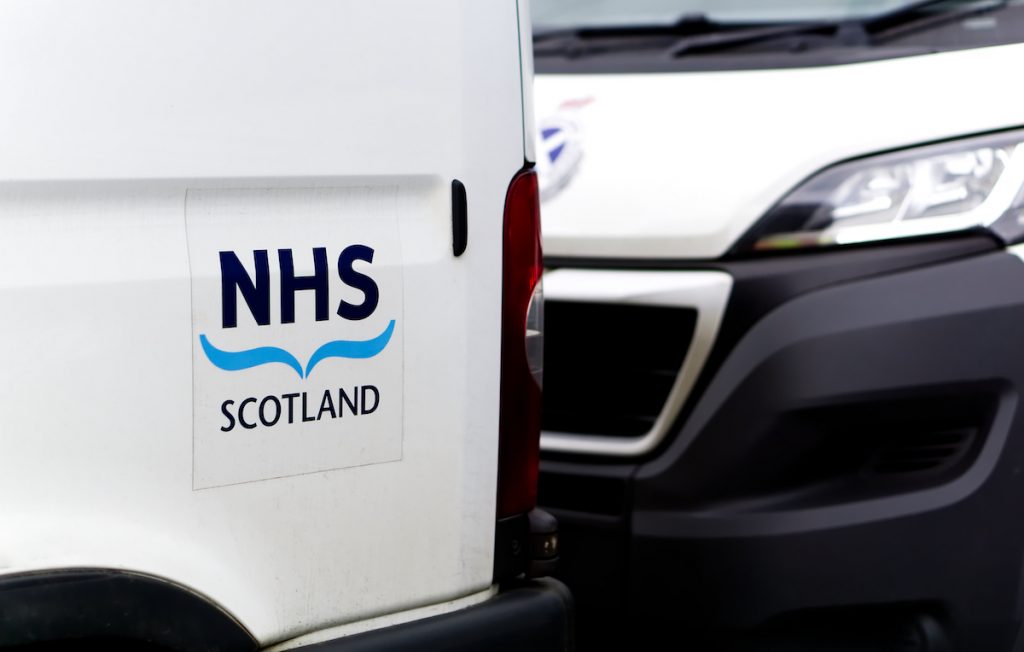A new survey has shown overwhelming support for a healthcare video consulting platform which was upscaled nationally in Scotland to help deliver vital services during the Covid-19 pandemic.
NHS Near Me, which was previously established in the more remote parts of the country before March, was rolled out nationally during lockdown, enabling thousands of patients to be able to speak to their clinicians via a secure video link.
Now, a government-backed evaluation of the platform, among 5,000 users, has found that 87% of the public and 94% of clinicians thought video consulting should be used for health and care appointments, providing it is “appropriate for the consultation”.
Key findings show the public stated a small preference for use of video over phone consulting both during periods of physical distancing for Covid-19 and afterwards.
The data showed health professionals identified a clear preference for using video consulting within the ongoing management of conditions, rather than in undifferentiated diagnosis.
However, for both groups, the majority still appeared to be most comfortable with face-to-face appointments when physical distancing is over, with 90 and 97.5% respectively. Respondents were asked to tick what consultation type they felt most comfortable with.
Health professionals identified a wide range of potential uses for Near Me but a clear preference was identified for use of video consulting within ongoing management of conditions (eg, asthma, mental health conditions, various out-patient follow up appointments) rather than in undifferentiated diagnosis (e.g, first presentation of abdominal pain).
Health professionals were also asked if there were any consultations when they would not use video: three out of four who responded (75%) said there were some, with the most frequently cited being when ‘a physical examination is required’.
“This feedback backs up the positioning of Near Me as a tool that should be used where appropriate (considering clinical conditions, and patient factors including social circumstances and choice),” the results of the public engagement exercise, which took place between June and August, indicated.
Health Secretary Jeane Freeman said: “During this first phase of the pandemic people followed our guidance closely, using their local pharmacy, GP practice, local minor injuries unit or calling NHS 24 when they needed medical and mental health advice and help. While the NHS has remained open during the pandemic, we need people to continue to access the right care in the right place.
“I am pleased patients and clinicians recognise the benefits of the Near Me service which offers people more choice over how they access health and care services and more flexibility in their day to day lives. As we look ahead to winter we will better support people to ensure they have the information they need to get the right care, closer to home.”
The report was published this week by the Technology Enabled Care (TEC) division of The Scottish Government; it evaluated NHS Near Me, which runs on the Australian Attend Anywhere platform and has been available in Scotland since 2016. Use prior to Covid-19 had been “limited”, the report notes, but with the onset of lockdown in March, a “rapid scale up plan” was introduced to accelerate its use across the country. In February, there had been on average around 300 Near Me consultations per week, but by the end it had reached 17,000, and that figure has remained constant ever since.
A range of clinicians have used the Skype-like service, including GPs, physiotherapists, nurses, psychologists, dietitians, occupational health and community care services.
Among the benefits highlighted in the study has been that patients have not had to travel, the platform has reduced the risk of infection – a particular benefit for those shielding – reduced time off work or education and helped family members and carers to get involved with appointments.
Main barriers highlighted were poor internet connectivity, lack of access to devices and privacy concerns; for practitioners the main fears were “missing something” important in a call.
In terms of inclusion, some groups highlighted language and communication barriers, lack of adequate resources and support for people with learning or physical disabilities.
However the report notes: “This engagement exercise has demonstrated strong support for Near Me video consulting services from both the public and clinicians. Going forward, health and care services should offer video consulting whenever it is appropriate, considering both clinical and social factors. This should be combined with person-centered choice to deliver the vision of care described in Realistic Medicine.
“Service providers should stop making generalised assumptions about the groups of people who can or cannot use video consulting, and enable individuals to make their own choice whenever possible. Further work is required to maximise the benefits of Near Me, including raising awareness of the service, increasing the use across services, addressing digital exclusion, improving patient information, and expansion and/or creation of local hubs for people to use Near Me.”
To read the full report visit the link here.
